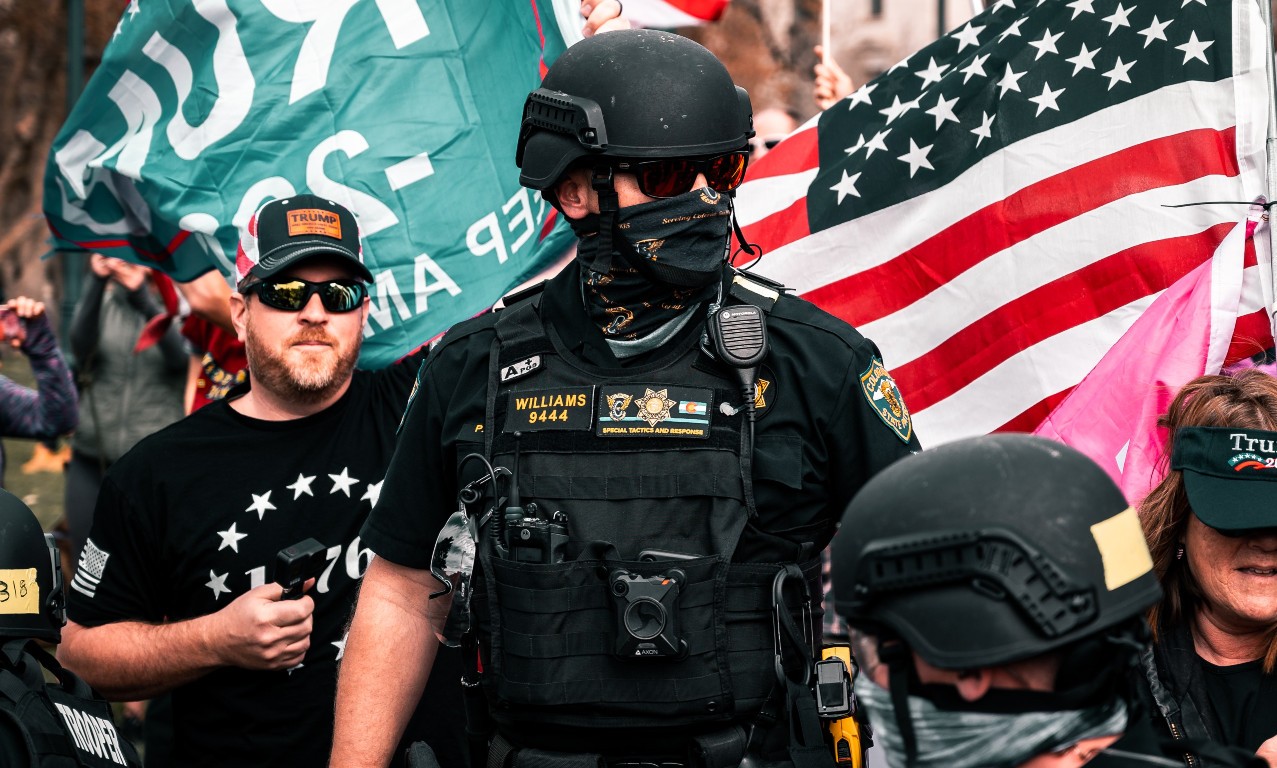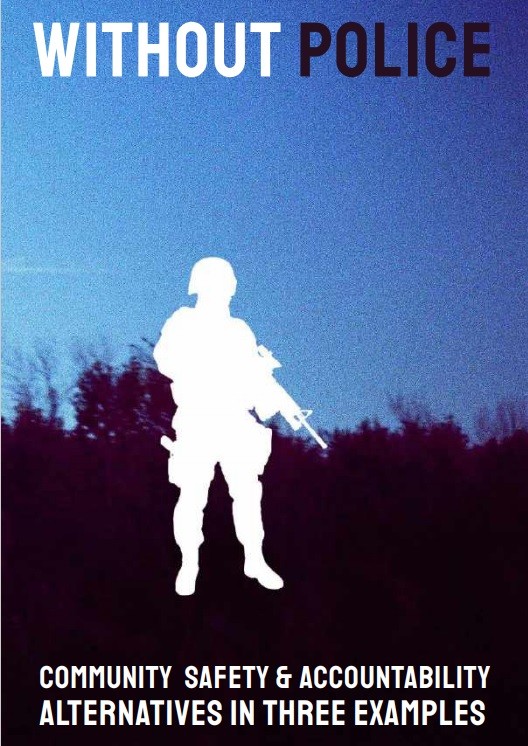Filed under: Community Organizing, Indigenous, Police, Publication

Announcing a new PDF booklet that explores living examples of stateless societies organizing themselves without police while building alternatives to ensure safety, security, and defense.
photo: Colin Lloyd via Unsplash
Following the murders of George Floyd, Breonna Taylor, and Elijah McClain, and the sustained uprising against police brutality, more of the general public in the so-called United States is abandoning the myth that police are capable of making our communities safer. In discarding this myth, we’re being challenged to think critically about how we can reduce our society’s reliance on policing institutions. But progressives are resistant to consider the complete abolition of the police. For those who are earnest in their desire for a more just world, their reluctance is often rooted in their inability to imagine what a world without police would look like.
Not only is it possible to have a policeless society, it is already the reality of a number of large-scale societies that have become much safer after dismantling their police institutions. Conversations debating police reform versus abolition quickly change course when people learn about their existence. This zine briefly describes
three current societies that have developed successful alternatives for managing community safety: the autonomous regions in Northern Syria, the indigenous town of Chéran, Mexico, and the Zapatistas in Chiapas, Mexico. The community defense forces and accountability processes they’ve created inspire us to think differently about how we can democratically meet our collective needs for safety.
Something all three of these societies share in common, and a large reason why they’ve been so successful in doing away with the police, is that they have also done away with their hierarchical, authoritarian forms of government and replaced them with directly democratic systems of governance. In working to reduce the root causes of crime and creating processes for communities to craft their own agreements, their needs for a designated group 2 of any kind, much less a professionalized, highly-weaponized one, to ensure their communities are safe and collective agreements are enforced has been significantly reduced. Of course citizens break agreements less when they can meaningfully help craft what those agreements are and when they have less of a need to break them.
These examples not only teach us that we can build alternative models for community safety, but also that we don’t need to abolish the police just because they are brutal in their enforcement of the law. We need to abolish them because they serve on the frontlines of an oppressive system that benefits from a majority of the world
living in poverty. Police aren’t designed to prevent crime; they react to crime with threats and acts of violence, protecting a system that benefits off the poverty that fuels crime. These societies are just as interesting for the ways in which they’ve decreased reliance on other oppressive structures, like punitive justice systems and prisons, welfare programs, and top-down governmental regulations.
These societies aren’t utopias. While they’re genuinely exploring the root causes of social and domestic conflicts, people still act in ways that are harmful to each other and their community. While they don’t have policing institutions, they do still have a need to provide the two main services we assume the police provide: protecting the community from outside threats and the enforcement of the community’s agreements when necessary. All three have developed what can be generalized under the term “community defense forces.”
Here are a few ways these community defense forces are different from police:
• They are made of up people from the communities they serve and are accountable to those communities. Processes to recall people serving on these forces are provided and used.
• They’re volunteer based rather than professionalized. People serving on the forces rotate so that more members of the community gain skills and experience being responsible for the community’s safety.
• They enforce agreements made by the community through consensus, not laws that are made by some people to serve their own interests.
These forces are also complemented by accountability structures whose goal is to administer transformative rather than punitive justice when community agreements are violated. Because the enforcement of agreements and the repercussions of the violation of agreements are so intertwined, these communities’ alternatives to our criminal courts and prison systems are touched on in this resource.
These societies are facing challenges that are very foreign to us in the so-called United States, and the cultural frameworks they’re building these solutions from are also unique to each of them. But equally, their solutions are built on values that will also need to be at the foundation of the more just societies we build: the nonauthoritarian democracy necessary for consensual governance, the decentralization of safety as a communal responsibility, the use of transformative justice rather than punitive justice.
In sifting through the limited information available in English about these communities online, we’re still left with a lot of unanswered questions about how these defense forces and accountability structures function, what their challenges are, and what remains problematic about the ways they operate. These communities also don’t claim that they’ve found perfect solutions to meet their communities’ needs for safety and accountability. We should be careful to not romanticize them as we learn from them; they are still on the road to deconstructing oppressive systems and dreaming up more just alternatives. They may be some steps ahead of us in abolishing their police, but our capacity to dream up more just worlds and put them into practice will always be ongoing, collective work that we are also responsible for participating in. With gratitude for the indigenous wisdom and courageous dreamwork the Kurds, Zapatistas, and Purépecha have built these alternatives out of, we can firmly assert that we do not need the police and move with greater certainty toward the realization of a new, more just world.
With gratitude for the indigenous wisdom and courageous dreamwork the Kurds, Zapatistas, and Purépecha have built these alternatives out of, we can firmly assert that we do not need the police and move with greater certainty toward the realization of a new, more just world.

PDF for Reading
PDF for Printing





